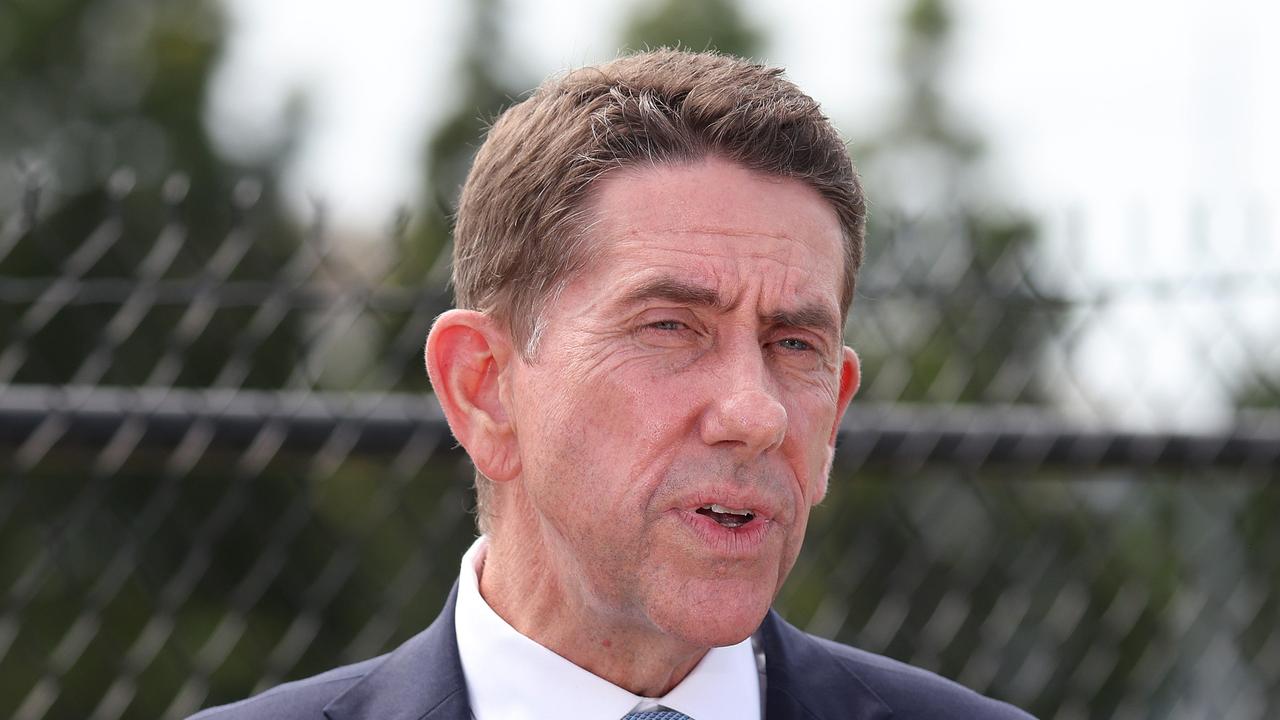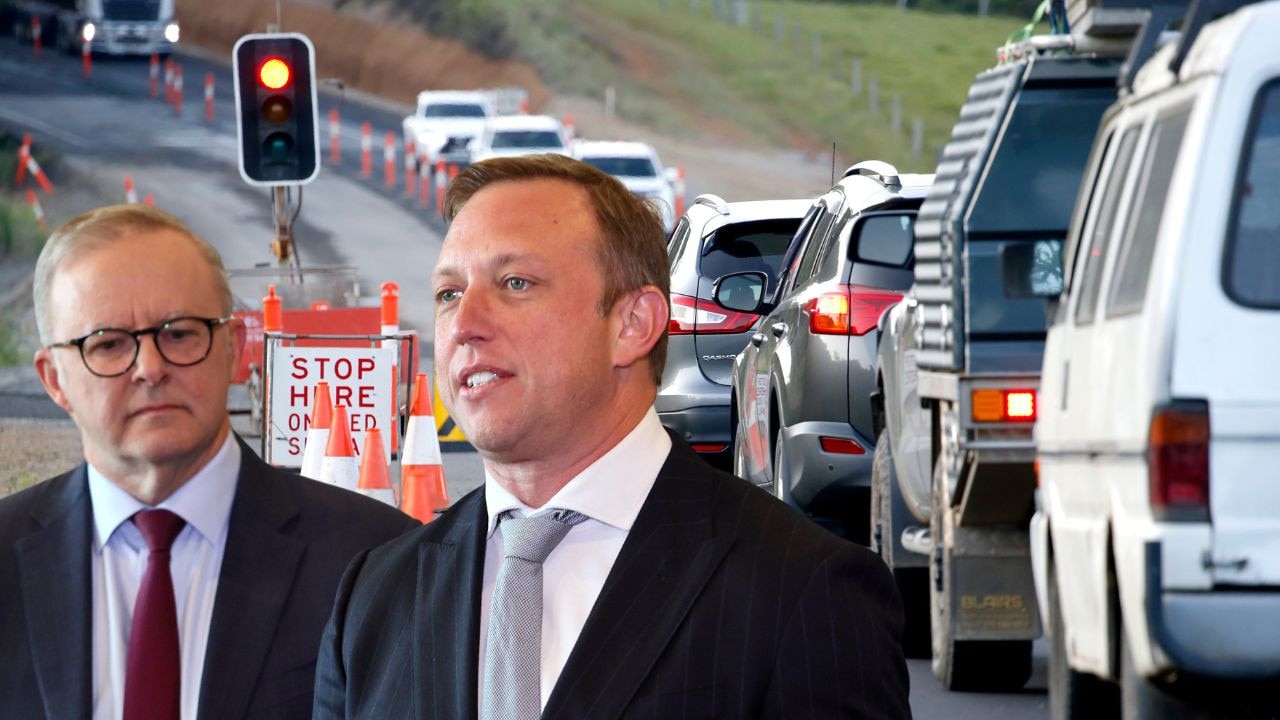Best job in Qld? Staggering pay, perks showered on union workers
Double time when it rains, a month of RDOs each year, and an extra $1000 a week when working away from home are just some of the sweetheart conditions the state government has struck with the construction unions. VOTE IN OUR POLL
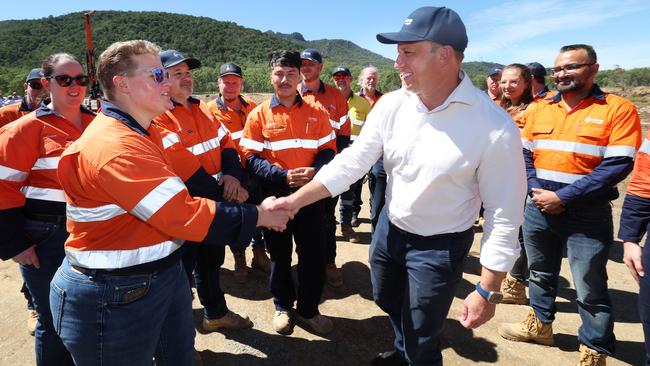
QLD Politics
Don't miss out on the headlines from QLD Politics. Followed categories will be added to My News.
Double time when it rains, a full month of rostered days off each year, and an extra $1000 a week when working away from home are just some of the sweetheart conditions the state government has struck with the construction unions under its controversial Best Practice Industry Conditions policy.
The Courier-Mail can for the first time reveal the detail of the extraordinary deals the state government has gifted the unions and locked in on taxpayer projects worth over $100m – a policy the industry says has crippled productivity and made private housing developments uneconomic.
Premier Steven Miles on Tuesday defended the policy and said he made no apologies for looking after workers, but the BPIC agreement guarantees those in the construction industry a range of conditions that teachers, nurses and police officers can only dream of.
The 269-page BPIC agreement for construction projects dated March 27 promises that work must stop when the temperature exceeds 29C and the humidity 75 per cent, or anytime when it spikes above 35C.
Any employee required to work in the rain will be paid double “for all work performed in the rain and such payment will continue until they cease work”.
Those workers already in the sheds due to rain – or because it is raining at starting time, morning tea, or lunch time – “will not be required to go to work in a dry area or to be transferred to another site unless the rain stops, a covered walkway has been provided, or the sheds are under cover and the employees can get to the dry area without going through the rain”.
The policy locks in 5 per cent annual pay rises through to 2027 – with some electricians getting a base rate of just under $3000 per week this year, crane operators $2394, carpenters $1948, painters and glaziers $1855, and roof tilers $1908.
But those base wages – based on a standard 36-hr week – are before a multitude of penalties, overtime rates and allowances spelled out in great detail.
These include double-time pay for any hours worked over 36 in any week, and a 300 per cent loading for working any day between and inclusive of Christmas Day, New Year’s Day, Good Friday and Easter Monday.
There is also a “distant construction site allowance” of $1000 a week for working on a project located 50km or more from the address of the employer. A scaled “site allowance” also applies to commercial construction work sites, ranging from $3.50 per hour on $100m projects to $11 per hour on $1bn projects – almost $400 on a 36-hour week.
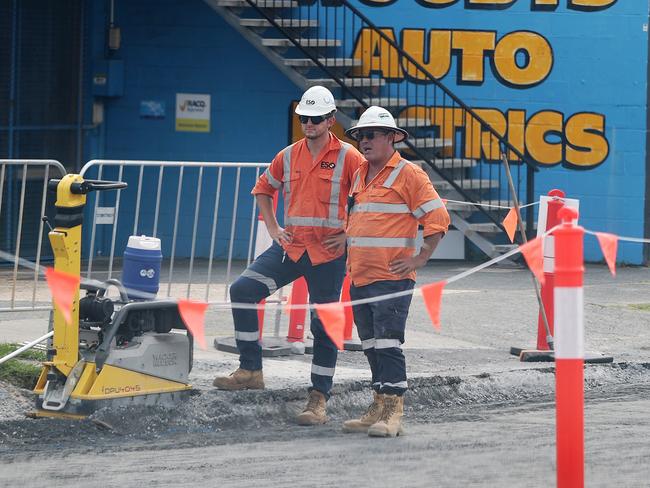
An RDO calendar also specifies the 26 days-off in addition to their four weeks of annual leave that must be given to all workers covered by the agreement.
Premier Miles said yesterday: “Government should be an employer of choice, and working on our projects should be one of the best jobs you can get.
“We are not afraid to take steps to ensure workers are properly paid on government projects.
“We are paying what it costs to get the workers to deliver the projects that Queensland needs.”
But the past year industry whistleblowers have urged the government to reconsider the policy, which has already been applied to major transport projects including the Gold Coast’s light rail and Coomera Connector and Brisbane’s Centenary Bridge – all which have suffered significant cost blowouts.
Industry insiders have also accused the government of “interfering in the free market” by lifting wages outside of major government projects, impacting the private sector’s ability to make other developments stack up.
Master Builders Queensland chief executive Paul Bidwell said the criticism of the BPICs was not about shortcutting safety and undermining workers’ rights.
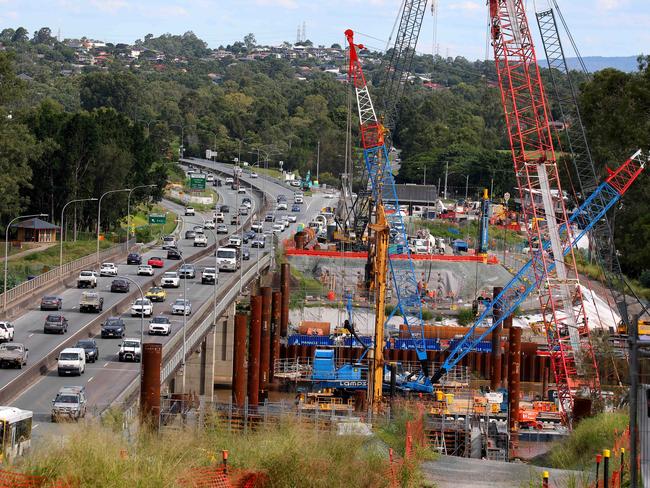
“It’s about ‘can we get on and build?’ ” he said.
“Because if we don’t, we are not going to deliver all these houses plus the other projects that are needed.”
Within the 269-page document – which also applies to “declared projects” at the government’s request – is a myriad of union delegate conditions baked in as mandatory for any employer seeking to take on a relevant government project.
It includes providing a facility for a union delegate with “a telephone, an iPad equipped with mobile internet access, a table and chairs, a filing cabinet, airconditioning/heating, access to stationery and other administrative facilities including use of facsimile (and) use of e-mail, and a private lockable area”.
The policy also states the company must invite the union delegate to attend every company induction for new employees and to address employees for at least half an hour per attendance.
Asked about the specific conditions and who was involved in designing the deals within the policy. a spokeswoman from the Department of Housing, Local Government, Planning and Public Works said: “BPICs are informed by existing enterprise agreements reached between employers and unions and ratified by the independent Fair Work Commission.”



